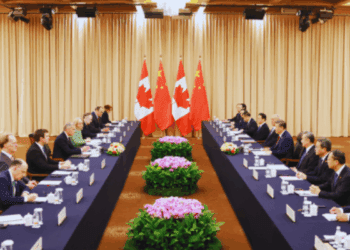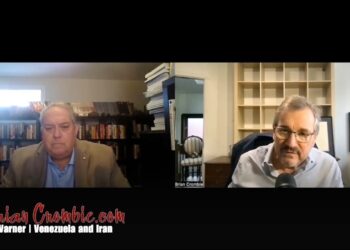Following on the heels of MLI’s ground breaking papers on resetting the relationship between Aboriginal and non-Aboriginal Canadians, which continues to attract substantial media interest, the Wall Street Journal published the article below. On May 1, 2013 MLI released two papers; “New Beginnings: How Canada’s Natural Resource Wealth Could Re-shape Relations with Aboriginal People” by Ken Coatesand Brian Lee Crowley, and “Canada and the First Nations: Cooperation or Conflict?” by Douglas Bland.
Canada’s Resource-Sector Success May Hinge on Aboriginal Ties
Paul Vieira,Wall Street Journal, May 1
Canada has an abundance of natural resources, but its ability to fully capitalize on them could be in jeopardy if more isn’t done to quell growing unrest among young natives over disenfranchisement, which played out in widespread protests earlier this year, an Ottawa think tank concluded Wednesday.
The Macdonald-Laurier Institute’s findings, released in two papers Wednesday, come months after a series of native protests — dubbed the Idle No More movement — blocked rail lines and highways to voice displeasure over government initiatives related to resources development. The groups argue that some initiatives, while promoting development, water down the environmental laws that protect their communities. The protests were among the most widespread by native groups in recent years.
The future of Enbridge Inc.’s proposed Northern Gateway pipeline, which would carry Alberta crude to the Pacific Coast for Asian-bound tankers, is also uncertain in part due to opposition from native groups which exert control over land the pipeline would be built on.
“The demonstrations associated with Idle No More spring from real frustrations and must not be dismissed as the protestations of a small number of radicals or angry people,” say the authors, which include the think tank’s managing director, Brian Lee Crowley.
Among the demands native leaders made at the height of the Idle No More protests was a bigger share of riches from resource development, often found adjacent to aboriginal communities. The authors note there are instances where mining companies and oil and gas explorers have struck agreements with local aboriginal leaders, with varying success. More must be done on this front, the think tank says, adding it can build a vital link between indigenous peoples and the rest of Canada.
“There is abundant evidence that aboriginal Canadians want fuller, more equitable participation in the country, and are deeply frustrated that the national system has not yet provided the benefits and resources necessary to strengthen and sustain their communities,” the think tank said.




